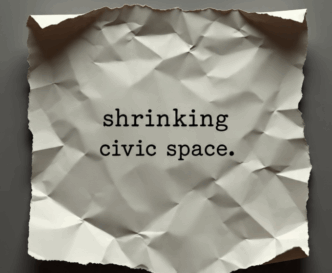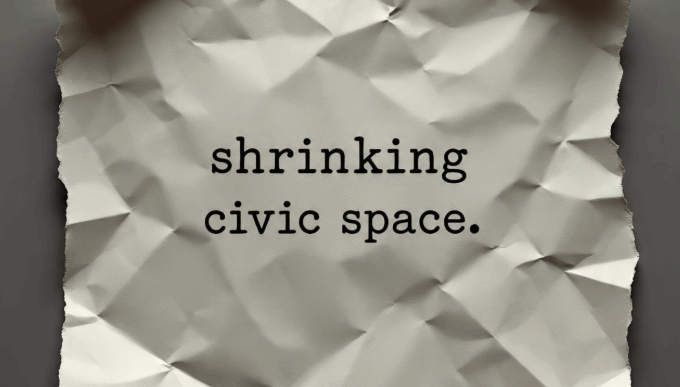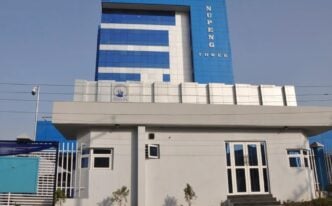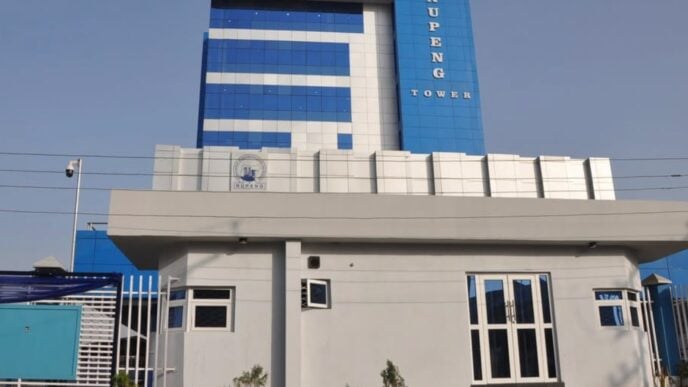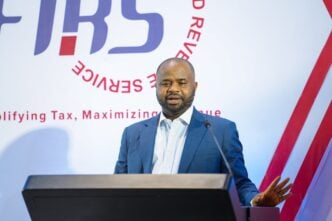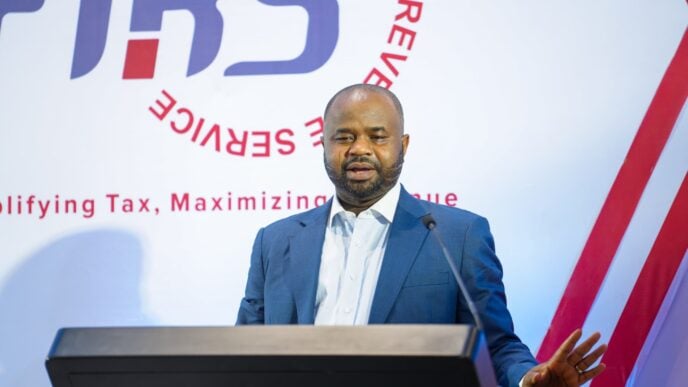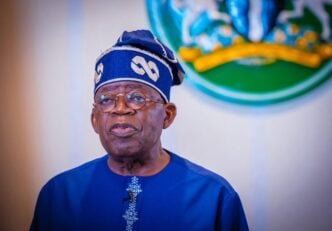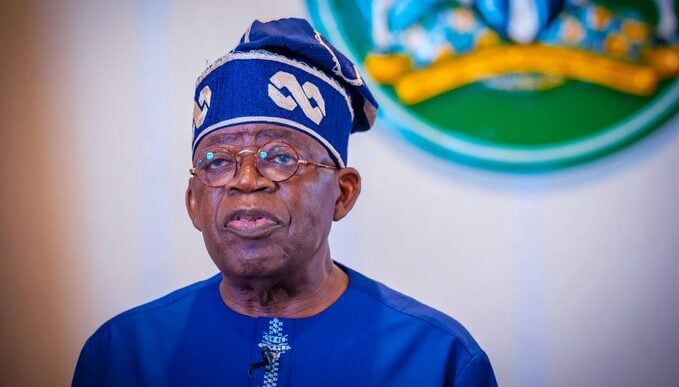Allen Avenue
BY ARIWOOLA SAMUEL AKINWALE
It was the Fuji musician, Wasiu Alabi Pasuma — the Omole-based maestro in Lagos — who, years ago, released a hit album titled Napoli Like Lagos. In that song, he explored the urban complexities and shared vibrancy of Naples in Italy and Lagos in Nigeria.
I like to see cities as living entities — preferably as living humans. So personifying Allen and Lekki comes naturally to my imagination. Cities, like people, possess character, mood, memory, and presence. Like Naples and Lagos: Allen and Lekki — two cities in one — represent an urban landscape of layered personalities and the complexities of modern existence. Lagos life.
Geographically, Allen connects to Alausa — the seat of Lagos power — to the north, and stretches toward Ilupeju, Adeniyi Jones, and other parts of Ikeja. The district is nearly evenly split between residential and commercial life. Lekki is different on this score: a reclaimed island, with a weary bridge that connects her to Falomo and Ikoyi — Lagos’ current seat of political power. Lekki is the giant: masculine, overbearing, evasive. He provokes your dream.
Advertisement
The peculiarities of both districts lie in their creativity, liveliness, lived experiences, arts, crafts, and the ideologies that shape their communities. This essay reflects on these features, examining the past, present, and possible futures of both Allen and Lekki.
To my mind, Allen and Lekki share something in common, too. One is at the heart of Ikeja, Lagos Mainland; the other, Lagos Island. Yet the stories of these two communities are worth considering — for the inherent lessons they offer.
In Lagos, Allen is associated with prostitution, nightclubs, and nightlife. A feminine character. A typical potpourri of Lagos cosmopolitanism, all walks of life are represented here — mostly lower- and middle-class residents — coexisting in the often-fuzzy and confusing patterns of the city’s population distribution. These patterns are even more pronounced in Lekki, an intimidating urban presence, elegant and royal in look, where the crème de la crème of Lagos can be seen, either resident or just hanging. Both present gentrified landscapes layered with histories that predate modernism. Here, a hidden story of displacement and replacement lies buried within documented land reclamation. Lekki is ever-changing and growing — its structures now climb upward, driven by land scarcity and an overpriced bid for status among the nouveaux riches.
Advertisement
During the day, Allen transforms into a commercial and official district: Nigerian banks, newly minted fintech companies, and shopping malls line the avenue, offering everything from consumer goods to luxury items. This duality reflects the dynamism of Lagos itself. Morning Lekki presents a similar picture — busy and serious at its outer edges and entrance. It wears a formal and bold outlook during the day. Her flamboyant presence graces every exterior side of the community. But the interior? Far more reserved. Almost shy.
Allen also attracts foreigners — Lebanese and Chinese businesspeople — who operate electronics outlets and eateries tucked into its many corners. But Allen’s true allure lies in her nightlife: enchanting and provocative, like a seductress. She sits in Ikeja with luring thighs and arms open wide — beckoning sore, tired, or fun-seeking souls to lose themselves in her embrace as darkness falls.
Lekki is her older brother — cunning but fiery, inviting yet commanding. He carries an air of seriousness unlike anywhere else you might have been. A very intimidating character. Never dare him. He can be welcoming but resplendent, beckoning the bold-hearted and adventurous to come for a game. Daily, he invites his workers to leave their homes early — sometimes as early as 4 a.m. — to escape the Lagos traffic. They come from the interior parts of the mainland, already wearied by the hustle life of Lagos. He needs them to run the community and pays them stipends in return — just enough to keep body and soul together. Exploit.
Since the 1990s, when it came into the limelight, Allen has housed some of Nigeria’s most vibrant clubhouses. The innocent look of the environment during the day gives the impression of a town soaked in urban decency, cosmopolitan identity, and negotiated traffic flows. At the heart of Allen, the Abami Eda’s (Fela Anikulapo-Kuti) statue stands gingerly at the roundabout — an area now witnessing urban renewal. Or bulldozers, if you like.
Advertisement
Lekki’s evolution has been gradual, bold, and almost revolutionary. Today, Lekki appears bolstered by the rich deposits of Nigerian oil wealth — an investment of a nation anchored on extravagance and excess. This affluence is a stark contrast to what is obtainable in the inner city of Lagos — a first world in the third world (apologies to Toyin Falola).
Allen boasts vibrant eateries like Chicken Republic and Item 7, newly established at her core. The district is beautiful in its own right — seductive like a charming maiden, yet flirtatious like an unfaithful lover. At night, men and women bare their souls to her allure. Some pass by unsuspectingly, dazzled by gentle smiles. Others, rugged and weary, are drawn in by a more primal charm.
By morning, Allen comes alive with more lawful and patronising business. At 6 am, the hangover of the previous night lingers in the faces of those who could not escape her grip. The indulgence was too strong — they are still charmed.
Daytime in Allen rarely showcases binge or revelry. Her full colours and glamour emerge only as twilight deepens into night — music, lights, and gradually thickening traffic set the mood for another round of seduction. Visitors pour in like torrential rain.
Advertisement
Quite the opposite is Lekki. The exterior of the community doesn’t just buzz with seriousness — it overshadows the nightlife you find there. Elegant daughters of Eve boost her liveliness at night — a city set on a conical hill, grand and gargantuan.
In combining the quiet of morning weariness with the vibrant energy of night, Allen becomes a compelling subject for sociological reflection. She reveals herself differently by the hour. And lest it be forgotten — Allen is mostly peaceful. Crime is rare. She is, in her own way, self-regulating.
Advertisement
Lekki is over-policed and gated. The unarmed security presence tells of excellent community policing — a model Nigeria could learn from in this age of insecurity: simple but effective. The super elements of modern living that dot the entire landscape can only be found in the Global North — from eateries, shopping malls, and high-profile hotels, to excellent horticulture and exterior designs.
The class structure of both communities is quite telling. Allen accommodates the pauper, the moderate, and a sparing presence of affluence. The nightlife is open to all — a welcoming smile to every visitor, regardless of class.
Advertisement
Lekki is rather classic. The downtrodden and lower-class residents are confined to restricted geographical spaces — Ikate, the backyard of this glossy landscape. Ironically, behind the thickly gated structures that line Lekki, many buildings remain empty. Few occupants live there. Yet our northern brothers provide the necessities that keep the community running — from security to housekeeping. They are the major occupants and ‘landlords’. Their bosses? Mostly out of town — or out of the country.
Nature abhors a vacuum. They let out the rooms to homeless professionals who work here. A nocturnal tenancy. You must learn to appear and disappear to work this kind of life. Or meet the aboki who manages an uncompleted building, collecting 1,000 naira from nocturnal occupants.
Advertisement
This is the enchanted story of Naples in Italy that mesmerised the Mushin-born musician — Pasuma — when he visited the city. A shearing and contrasting world of two cities in one. A restless city with unprecedented housing deficits.
“Napoli like Lagos, Alabi.”
Ariwoola Samuel Akinwale wrote this piece from Lagos. He can be contacted via [email protected]
Views expressed by contributors are strictly personal and not of TheCable.



